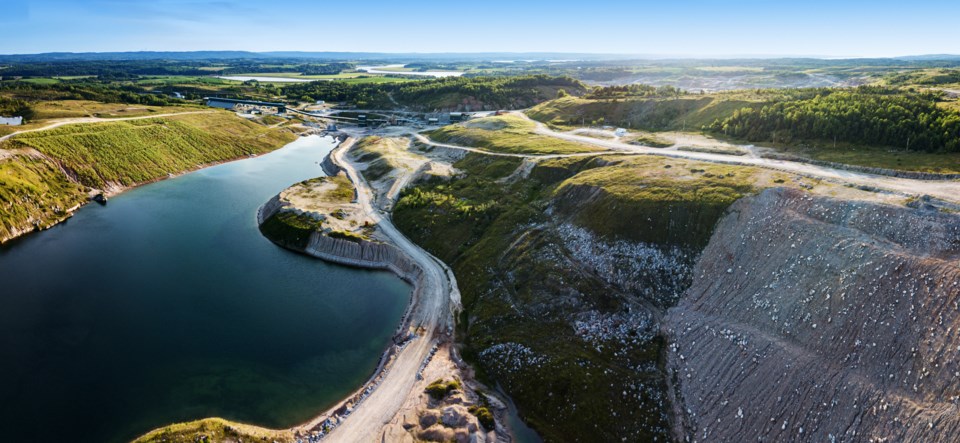This ought to be Pierre Gratton’s moment.
The 11-year CEO of the Mining Association of Canada, by any objective measure, ought to be beaming at the confluence of events making possible an historic boom in the sector he represents.
For one thing, the public research clearly shows the image of the business has changed in recent years.
We are accepting as a country that mining is serious about mitigating climate change. We are highly supportive when its plans include the reduction of greenhouse gas emissions. We are proud of the sector in ways we haven’t always been and conscious of its positive contribution to our well-being.
And why not? The mineral sector generates five per cent of our GDP, $125 billion in 2021 (including $12.9 billion in B.C.), employs 400,000 Canadians and is the largest sectoral employer of some 16,500 Indigenous Peoples.
These are proud points.
And some hefty factors are suddenly on the best side of the ledger for us.
We and most of the world want nothing of Russia’s minerals, and we have the U.S. president’s mammoth Inflation Reduction Act spending, the German chancellor’s sudden sweat to diversify mineral sources and a tweak to the North American trade deal behind us in the quest for critical minerals to, among other things, unleash electric vehicle mass manufacturing to Canada’s benefit.
“We can’t afford to fail,” Gratton says. “Frankly, our allies in the U.S. and Europe are counting on us.”
On the one hand, there is this: “Canada needs to deliver if we are to reduce our reliance on China and Russia for critical minerals, if we are to continue to have a North American auto sector so important to the Canadian economy, if we are to have any chance of fighting climate change. The stakes are very high. A stable battery ecosystem is powered by critical minerals and customers are lining up to buy from Canada.”
On the other hand, there is also this: “We need to deliver.”
And yet, and yet.
Easier said than done, in no small part due to the government of the day. Just as we can’t get a pipeline piping, we can’t get mines mining. To be glib, you could say permits are approved at glacier speed. But to be really glib, you could say glaciers are actually dissolving faster than permits are materializing.
It is true and hopeful that last week, as Gratton addressed the Greater Vancouver Board of Trade, he could cite a comment earlier this summer by the federal Natural Resources Minister Jonathan Wilkinson that Canada has to more swiftly issue permits to extract what the market needs – needs, it might be noted, in no small measure to meet the lofty standards of climate action.
And yet, and yet.
What one voice wants is not what other voices act upon. The world needs what we have and we can’t get it out from the ground as needed. About the best one can divine from Ottawa is that it’s working on it.
For many industries, the Justin Trudeau government has focused more economic attention on objectives than on operations, on the down-the-road climate conditions than on current competitive conditions. And while it has done well to identify the path to greater opportunities to Indigenous People, it has left Corporate Canada to identify to the rest of Canada what that will mean.
What ought to be driving it now are a few new wrinkles: Vladimir Putin’s madness, Joe Biden’s measures, Olaf Scholz’s pressure, the economic cycle that will be forced into recession then need to be revived.
To be fair, it is also true that last spring’s $3 billion commitment to mining in the budget was a starting point on many of these necessary steps. More is likely to follow, and those funds should flow into the system on the other side of whatever weak recession most economists surmise is imminent or might already be upon us. Gratton is convinced it will help make Canada the world leader in global mineral exploration.
To meet the market needs, Canada needs to activate eight mines in the next decade, and Gratton will tell you, “I don’t know where those mines are.” And identification is just a step, long from the delivery he argues Canada must abide. Wilkinson has acknowledged it takes 15 years to activate a mine into production; in the context of battery development alone, the minister said, “We don’t have 15 years.” That process has to shrink substantially and soon.
On certain matters – blockades, floods, rail and port labour disruptions – there is little the industry can do. But on the government front, Gratton expresses some confidence. He has more than his own shoulder at the wheel now.
Kirk LaPointe is publisher and editor-in-chief of BIV and vice-president, editorial, of Glacier Media.



